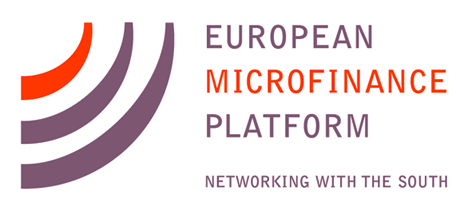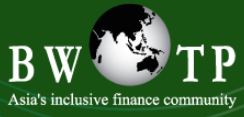This paper is intended to “enable international understanding of the finances of MFIs [microfinance institutions] in Nepal and the potential role of external lenders in supporting the ecosystem of the country.” According to Mr Sinha and Dr Dhakal, the COVID-19 pandemic has had less severe effects on the microfinance sector in Nepal than it has in countries such as India and Myanmar. This is partially because MFI customers in Nepal didn’t make significant withdrawals
Search Results for: sinha
MICROFINANCE PAPER WRAP-UP: “Has the Pandemic Spared Cambodia? Liquidity Considerations of Cambodia’s Large MFIs,” by Sanjay Sinha, Published by M-CRIL
The purpose of this paper is “to enable understanding of the finances of [microfinance institutions] in Cambodia and the potential role and expectations of investors in supporting the microfinance ecosystem of the country.” While other sources have sounded alarms
SPECIAL REPORT: Sanjay Sinha of M-CRIL Calls Overexuberant Growth “Recipe for Disaster” at European Microfinance Week Opening
This morning, following a day of member meetings, the European Microfinance Platform (e-MFP) opened its eighth European Microfinance Week, which is themed “Combining Strength, Delivering Results” and aims to address the loss of confidence in many circles that microfinance benefits poor people. In the opening plenary session, Sanjay Sinha, managing director of India’s Micro Credit Rating International Limited (M-CRIL), said that, “Moderate growth is good for inclusion. Rampant growth, which is what we had for a long time in India, is a recipe for disaster…. In order to reduce growth, we need to temper the egos of the promoters of microfinance institutions (MFIs). And we all know we need to dampen the expectations of investors – I’m talking mainly of the Indian commercial banking sector.”
MICROCAPITAL BRIEF: MicroFinanza Rating, MicroRate, Planet Rating Sign Microfinance Rating Agency Code of Conduct, Sanjay Sinha of Micro-Credit Ratings International (M-CRIL) Criticizes Commercial Rating Agencies as “Too Liberal” with Microfinance Institutions
Three providers of institutional, performance and social ratings of microfinance institutions (MFIs), MicroFinanza Rating of Italy, US-based MicroRate and French Planet Rating, recently signed the Microfinance Rating Agency Code of Conduct.
MICROFINANCE PAPER WRAP-UP: Making Insurance Markets Work for the Poor: Microinsurance Policy, Regulation and Supervision – India Case Study; by Sanjay Sinha and Swetan Sagar; Published by CGAP (Consultative Group to Assist the Poor) Working Group on Microinsurance
By Sanjay Sinha and Swetan Sagar; published by CGAP (Consultative Group to Assist the Poor) Working Group on Microinsurance; January 2009; 127 pages; available at http://www.microinsurancenetwork.org/file/8_India_Impact_RSP_2009.pdf
MICROCAPITAL BRIEF: CGAP Responds to Criticisms From Dr Sanjay Sinha, Managing Director at Micro-Credit Ratings International (M-CRIL) of India
CGAP (Consultative Group to Assist the Poor), an independent policy and research center housed at the World Bank Group, recently responded to proposals made by Dr Sanjay Sinha, managing director at Micro-Credit Ratings International (M-CRIL), which were presented in a recent article covered by MicroCapital on July 15, 2010.
MICROCAPITAL BRIEF: Dr Sanjay Sinha of M-CRIL Takes Issue with CGAP (Consultative Group to Assist the Poor)
Dr Sanjay Sinha, managing director at Micro-Credit Ratings International (M-CRIL), authored an article featured in Microfinance Focus in which he proposed changes to several of the ideas advocated by CGAP (Consultative Group to Assist the Poor), an independent policy and research center housed at the World Bank Group.
MICROCAPITAL BRIEF: IREDA Loans $4m to Husk Power Systems for 140 Solar Microgrids in Rural India
 The India Renewable Energy Development Agency (IREDA), a government entity, recently loaned INR 310 million (USD 4.2 million) to Husk Power Systems, an India-based supplier of small-scale electricity generation and distribution networks in rural India and Africa, to construct 140 solar microgrids in the Indian states of Bihar and Uttar Pradesh. IREDA is
The India Renewable Energy Development Agency (IREDA), a government entity, recently loaned INR 310 million (USD 4.2 million) to Husk Power Systems, an India-based supplier of small-scale electricity generation and distribution networks in rural India and Africa, to construct 140 solar microgrids in the Indian states of Bihar and Uttar Pradesh. IREDA is
MICROCAPITAL BRIEF: ECCAS, UNCDF Pursue Better Digital Remittances To, Within Central Africa
The 11-member Economic Community of Central African States (ECCAS) and the UN Capital Development Fund (UNCDF) recently entered a two-year agreement through which they aim to expand “affordable and convenient access to digital remittances” for migrants transferring money to family members in their home countries. Priti Sinha, the Executive Secretary of UNCDF said,
SPECIAL REPORT: Resilience Among Microfinance Institutions? “Region of Crisis” Relatively Stable; “Moratorium Veil” Yet to Lift
As  part of the opening day of European Microfinance Week, Mohammed Khaled of the World Bank Group’s International Finance Corporation stated that the effects of the COVID-19 pandemic on the microfinance sector in the Middle East and North Africa (MENA) so far have not been as bad as was feared earlier in 2020. Most of the large microfinance institutions (MFIs) in the region have maintained 30-day portfolio-at-risk (PAR) ratios below 4 percent. Mr Khaled said, “Among leading MFIs, PAR did not rise as high as expected. We thought [it might rise to] 10 percent to 20 percent, but many MFIs have kept things under control.” Part of the reason for this, he believes is that “this is
part of the opening day of European Microfinance Week, Mohammed Khaled of the World Bank Group’s International Finance Corporation stated that the effects of the COVID-19 pandemic on the microfinance sector in the Middle East and North Africa (MENA) so far have not been as bad as was feared earlier in 2020. Most of the large microfinance institutions (MFIs) in the region have maintained 30-day portfolio-at-risk (PAR) ratios below 4 percent. Mr Khaled said, “Among leading MFIs, PAR did not rise as high as expected. We thought [it might rise to] 10 percent to 20 percent, but many MFIs have kept things under control.” Part of the reason for this, he believes is that “this is
MICROCAPITAL BRIEF: FMO Loans $5m to Husk Power Systems for Renewable Energy Generated from Biofuels, Distributed via Minigrids in Rural India, Tanzania
The Netherlands Development Finance Company, a public-private partnership also known by its Dutch acronym FMO, recently disbursed a loan of USD 5 million to Husk Power Systems, an India-based startup that builds small-scale electricity generation and distribution networks in rural areas of India and Tanzania. These minigrids use biofuels
MICROFINANCE EVENT: Sankalp Global Summit; December 11-12, 2018; Mumbai, India
Themed “Agenda 3 Billion – Building Entrepreneurial Ecosystems,” the 10th Sankalp Global Summit is organized around the following sectors: agriculture, clean energy, health & sanitation, financial inclusion, and livelihoods. Sample presentation titles include: (1) Financial Inclusion in the Digital Age,
MICROCAPITAL BRIEF: Sri Lanka’s SANASA Installing 35 Weather Stations, Expanding Index Insurance for Rice Farmers to Pepper, Cinnamon Growers
SANASA Insurance Company Limited, a member of Sri Lanka’s cooperative SANASA group, recently installed the first of 35 weather stations funded by a donation from Desjardins Financial Security, an insurer within the Canadian cooperative Desjardins Group. The stations expand an existing network supporting SANASA Insurance’s provision of index insurance to rice farmers, whereby the farmers are paid when weather conditions are not conducive to healthy crops rather than based on individual insurance claims. The new stations are intended to improve the provision of insurance for rice farmers as well as allowing SANASA Insurance to expand to serving pepper and
MICROFINANCE PUBLICATION ROUND-UP: Offshore Financial Centers for Impact Investing; Financial Inclusion in 2025; Microfinance in India
“Offshore Financial Centers for Financial Inclusion: A Marriage of Convenience;” by Sam Mendelson and Daniel Rozas; published by the Center for Financial Inclusion (CFI) at Accion; June 2017; 14 pages; available at:
http://www.centerforfinancialinclusion.org/publications-a-resources/browse-publications/865-offshore-financial-centers-for-financial-inclusion
This paper explores the use of offshore financial centers (OFCs) based on interviews with 13 equity impact investors.
SPECIAL REPORT: Mekong Financial Inclusion Forum: Overview of the Region
In anticipation of the recently announced Asia-Pacific Financial Inclusion Forum, which will be held in Hanoi, Viet Nam, on March 21 and March 22, 2017, MicroCapital is launching a series of stories from the Banking with the Poor Network‘s Mekong Financial Inclusion Forum, which was held in July 2016. The Foundation for Development Cooperation engaged MicroCapital to assist in documenting the event.
Ms.  Nina Nayar, Associate of the Foundation for Development Cooperation, opened the session reviewing microfinance products and market segments in the region. She described the evolution from “credit and basic savings” years ago to today’s array of credit, savings, insurance, money transfer and other services for individuals as well as micro, small and medium enterprises (MSMEs). These include “a whole slew of innovations” such as payment cards and automated teller machines. She argued that new products are in demand by many segments of often-excluded people: farmers, people in conflict areas, minorities, youth, urban informal workers, migrants and single mothers. At the same time, fear and lack of confidence often
Nina Nayar, Associate of the Foundation for Development Cooperation, opened the session reviewing microfinance products and market segments in the region. She described the evolution from “credit and basic savings” years ago to today’s array of credit, savings, insurance, money transfer and other services for individuals as well as micro, small and medium enterprises (MSMEs). These include “a whole slew of innovations” such as payment cards and automated teller machines. She argued that new products are in demand by many segments of often-excluded people: farmers, people in conflict areas, minorities, youth, urban informal workers, migrants and single mothers. At the same time, fear and lack of confidence often
SPECIAL REPORT: Evolving Regulations Obscure the Future of Microfinance in Myanmar
Paul  Luchtenburg, who serves as coordinator for the UN Capital Development Fund in Myanmar, described several of the contrasts in the microfinance industry in Myanmar at European Microfinance Week Thursday. Five years into civilian rule, Mr Luchtenburg says “I’ve never seen a government work so hard. You go to a meeting and the results go up the leadership chain that night…. There’s this rapid push for development.” To accept deposits, institutions must pay at least 10 percent per year and be deemed “sustainable” by the government. However, lending rates are capped at 2.5 percent per month, a level that all of the panelists agreed was too low, especially for serving rural areas. Rommel Caringal, the CEO of the local unit of US-based VisionFund, said, “The inconsistency is causing big problems, but
Luchtenburg, who serves as coordinator for the UN Capital Development Fund in Myanmar, described several of the contrasts in the microfinance industry in Myanmar at European Microfinance Week Thursday. Five years into civilian rule, Mr Luchtenburg says “I’ve never seen a government work so hard. You go to a meeting and the results go up the leadership chain that night…. There’s this rapid push for development.” To accept deposits, institutions must pay at least 10 percent per year and be deemed “sustainable” by the government. However, lending rates are capped at 2.5 percent per month, a level that all of the panelists agreed was too low, especially for serving rural areas. Rommel Caringal, the CEO of the local unit of US-based VisionFund, said, “The inconsistency is causing big problems, but
MICROFINANCE PUBLICATION WRAP-UP: “The Microfinance Sector in Morocco: Investment Opportunities After the Crisis;” Published by MicroFinanza Rating
“The Microfinance Sector in Morocco: Investment Opportunities After the Crisis,” published as part of the Insight series by MicroFinanza Rating, May 2014, 4 pages, available at http://www.microfinanzarating.com/images/Insight_Morocco_March_2014.pdf
Performed by Italy’s MicroFinanza Rating in May 2014, this “country screening” analyzes the political, economic and legal frameworks in which microfinance institutions (MFIs) function in Morocco.
SPECIAL REPORT: Why Microfinance Institutions Offer Unprofitable Housing Loans
On November 14, the closing day of the European Microfinance Platform’s (e-MFP’s) European Microfinance Week, Wilson Twamuhabwa, CEO of Uganda’s Ugafode Microfinance Limited, explained that his organization began to offer housing loan products partly because its clients were using 30 percent of their loans for housing anyway.
